
The United States Department of State (DOS), or simply the State Department, is an executive department of the U.S. federal government responsible for the country's foreign policy and relations. Equivalent to the ministry of foreign affairs of other nations, its primary duties are advising the U.S. president on international relations, administering diplomatic missions, negotiating international treaties and agreements, and representing the U.S. at the United Nations. The department is headquartered in the Harry S Truman Building, a few blocks from the White House, in the Foggy Bottom neighborhood of Washington, D.C.; "Foggy Bottom" is thus sometimes used as a metonym.

The United States Department of Commerce (DOC) is an executive department of the U.S. federal government. It is responsible for gathering data for business and governmental decision making, establishing industrial standards, catalyzing economic development, promoting foreign direct investment, and safeguarding national economic security.
The Office of eDiplomacy is an applied technology think tank for the United States Department of State. The Office of eDiplomacy is staffed by Foreign and Civil Service Officers in a wide range of specializations. There are four branches: the Diplomatic Innovation Division (DID), the Knowledge Leadership Division (KLD), and the Business Requirements Unit (BRU).
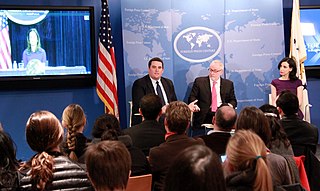
Digital diplomacy, also referred to as Digiplomacy and eDiplomacy, has been defined as the use of the Internet and new information communication technologies to help achieve diplomatic objectives. However, other definitions have also been proposed. The definition focuses on the interplay between internet and diplomacy, ranging from Internet driven-changes in the environment in which diplomacy is conducted to the emergence of new topics on diplomatic agendas such as cybersecurity, privacy and more, along with the use of internet tools to practice diplomacy.

The U.S. Department of State's Bureau of International Information Programs (IIP) supported the department's public diplomacy efforts by providing and supporting the places, content, and infrastructure needed for "sustained conversations" with foreign audiences. It was headed by the Coordinator for International Information Programs. IIP was one of three bureaus that reported to the Undersecretary for Public Diplomacy and Public Affairs. The Bureau of Educational and Cultural Affairs and the Bureau of Public Affairs were its sister bureaus. On May 28, 2019, IIP merged with the Bureau of Public Affairs into the Bureau of Global Public Affairs, and the duties of IIP Coordinator merged into the duties of the Assistant Secretary of State for Global Public Affairs.
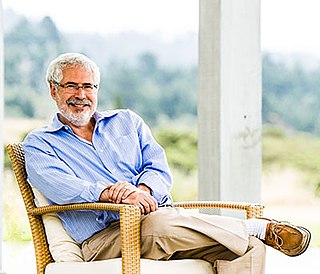
Steve Blank is an American entrepreneur, educator, author and speaker. He created the customer development method that launched the lean startup movement. His work has influenced modern entrepreneurship through the creation of tools and processes for new ventures which differ from those used in large companies.
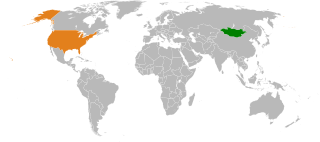
Bilateral relations between Mongolia and the United States formalized in 1987 with the establishment of diplomatic relations. Since then, the United States has become a key third neighbor to Mongolia, and in 2019 this relationship was upgraded to a strategic partnership. Ties focus on education, development assistance, and defense.
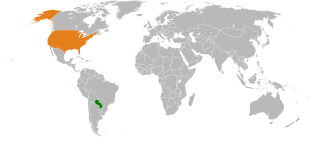
The United States and Paraguay have had bilateral relations since 1852.
Tara L. Lemméy is an American entrepreneur, inventor, designer, technology expert, and innovation strategist. She is CEO and founder of LENS Ventures, an innovation and investment firm based in San Francisco. Lemméy was named one of the 100 Most Creative People in Business in 2013 by Fast Company (magazine) and one of the MCP 1000: The Most Creative People in Business. She is an inventor with over seventy US and international utility and design patents.
Discovery Park is a 40-acre (160,000 m2) multidisciplinary research park located in Purdue University's West Lafayette campus in the U.S. state of Indiana. Tomás Díaz de la Rubia, an energy and resources industry executive who also spent a decade as a top scientist and administrator at Lawrence Livermore National Laboratory, serves as Discovery Park's Vice President.

Earl Anthony Wayne is an American diplomat. Formerly Assistant Secretary of State for Economic and Business Affairs, Ambassador to Argentina and Deputy Ambassador to Afghanistan, Wayne served nearly four years as Ambassador to Mexico. He was nominated by President Obama and confirmed by the Senate in August, 2011. He departed Mexico City for Washington July 31, 2015 and retired from the State Department on September 30, 2015. Wayne attained the highest rank in the U.S. diplomatic service: Career Ambassador. He is currently a Professorial Lecturer and Distinguished Diplomat in Residence at American University's School of International Service where he teaches courses related to diplomacy and US foreign policy. Wayne also works with the Woodrow Wilson International Center for Scholars, the Atlantic Council, the Center for Strategic and International Studies,. Wayne is co-chair of the Mexico Institute's Advisory Board at the Wilson Center. He is also on the board of the American Academy of Diplomacy and the Public Diplomacy Council of America. Wayne is an independent consultant, speaker and writer and works with several not-for-profit professional associations. He was an adviser for HSBC Latin America on improving management of financial crime risk from 2015 until 2019 and served on the board of the American Foreign Service Association from 2017 to 2019.

The Quadrennial Diplomacy and Development Review (QDDR) is a study by the United States Department of State, conducted beginning in 2009 and intended to be done every four years, that analyzes the short-, medium-, and long-term blueprint for the United States' diplomatic and development efforts abroad. It seeks to plan on a longer-term basis than the usual year-to-year, appropriations-based practice, and to integrate diplomacy and development missions. It similarly seeks to correlate the department’s missions with its capacities and identify shortfalls in resourcing. Finally, it is a precursor to core institutional reforms and corrective changes. The first review was completed by the end of 2010. A second review began during 2014 and was released in April 2015. No further reviews have taken place.
Christopher M. Schroeder is an American entrepreneur, advisor, author, and investor in interactive technologies and social communications.
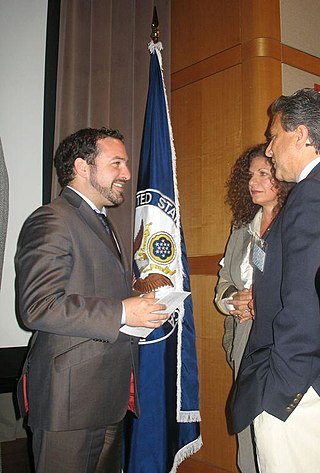
In his "A New Beginning" speech on June 4, 2009, at Cairo University in Cairo, Egypt, President of the United States Barack Obama announced, "I will host a Summit on Entrepreneurship this year to identify how we can deepen ties between business leaders, foundations and social entrepreneurs in the United States and Muslim communities around the world". The Presidential Summit on Entrepreneurship, held in Washington, D.C., on Monday April 26, and Tuesday, April 27, 2010, at the Ronald Reagan Building, followed through on President Obama's commitment by highlighting the importance of social and economic entrepreneurship, and strengthening mutually-beneficial relationships with entrepreneurs in Muslim-majority countries and Muslim communities around the world. At the second summit in Istanbul, Turkey, Vice President Joe Biden announced that the Presidential Summit would become the marquee event that kicks off Global Entrepreneurship Week each year, with the 2013 host being the United Arab Emirates.
The Secretary's Office of Global Women's Issues is located within the United States Department of State. In 2009, Melanne Verveer was appointed to be the first Ambassador-at-Large for Global Women's Issues. From September 2013 to May, 2017, Catherine M. Russell was appointed to this position. From May 2017 through December 2019, there was no ambassador for this office. Kelley Currie, a political appointee, joined the Global Women's Issues Office as U.S. Ambassador-at-Large in January 2020. Geeta Rao Gupta is the current Ambassador-at-Large for the office as of May 18, 2023.
Commercial diplomacy is diplomacy that focuses on development of business between two countries. It aims at generating commercial gains in the form of trade and inward and outward investment by means of business and entrepreneurship promotion and facilitation activities in the host country. Commercial diplomacy is pursued with the goal of gaining economic stability, welfare, or competitive advantage.
Christoph Alexander Geiseler is a filmmaker and musician. He is the founder and CEO of Seenfire; he also founded the One Minute Academy and the international charity, MIMA Music, Inc. Geiseler works with the National Geographic Society, Adobe Inc. and Princeton University as a one-minute video expert and video producer. He represents the US Department of State as a Cultural Envoy and a video diplomacy expert; he has produced projects with 65 embassies around the world, ranging from drug violence prevention in Brazilian slums and entrepreneurship training in India, to video workshops for diplomats in Paris.
Mona Olsen is a British-American entrepreneur and academic. Olsen is the founder and president of the board of iMADdu Inc., an educational nonprofit (501c3) based in Fairfax, Virginia that launched in 2010.
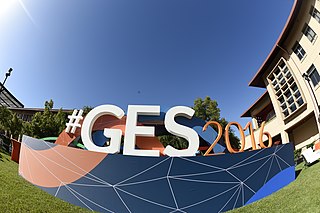
The Global Entrepreneurship Summit is an annual event organized by the federal government of the United States, in partnership with foreign government hosts. The summit originated from an event organized by the Obama Administration called the Presidential Summit on Entrepreneurship, which was held in April 2010 in Washington, D.C. It brought together entrepreneurs from the United States, Europe, Africa, the Middle East, South Asia, and Southeast Asia to discuss the importance of social and economic entrepreneurship, establish entrepreneurship as an important area of policy focus, and strengthen mutually beneficial relationships between entrepreneurs.

Dilawar Syed is a Pakistani-American businessman, entrepreneur, and government official. He currently serves as Deputy Administrator of the U.S. Small Business Administration. He previously served as Special Representative for Commercial and Business Affairs at the United States Department of State.











